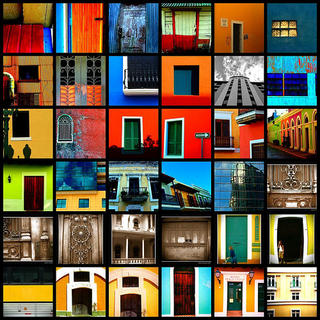Survivor Story: 6-Year-Old Leads Five Toddlers, Baby To Safety
http://www.msnbc.msn.com/id/9230423/
(FROM WLEX-TV)
In the chaos that was Causeway Boulevard in New Orleans last Thursday, one group of survivors stood out: a 6-year-old boy walking down the road, holding a 5-month-old, surrounded by five toddlers who followed him around as if he were their leader.
They were holding hands. Three of the children were about two years old, and one was wearing only diapers. A three-year-old girl, who wore colorful barrettes on the ends of her braids, had her 14-month-old brother in tow. The 6-year-old spoke for all of them, and he told rescuers his name was Deamonte Love.
Thousands of human stories have flown past relief workers in the last week, but few have touched them as much as the seven children who were found wandering together Thursday at an evacuation point in downtown New Orleans. In the Baton Rouge headquarters of the rescue operation, paramedics tried to coax their names out of them; nurses who examined them stayed up that night, brooding.
Transporting the children alone was "the hardest thing I've ever done in my life, knowing that their parents are either dead" or that they had been abandoned, said Pat Coveney, a Houston emergency medical technician who put them into the back of his ambulance and drove them out of New Orleans.
"It goes back to the same thing," he said. "How did a 6-year-old end up being in charge of six babies?"
So far, parents displaced by flooding have reported 220 children missing, but that number is expected to rise, said Mike Kenner of the National Center for Missing and Exploited Children, which will help reunite families. With crowds churning at evacuation points, many children were parted from their parents accidentally; one woman handed her baby up onto a bus, turned around to pick up her suitcase and turned back to find that the bus had left.
At the rescue headquarters, a cool tile-floored building swarming with firefighters and paramedics, the children ate cafeteria food and fell into a deep sleep. Deamonte volunteered his vital statistics. He said his father was tall and his mother was short. He gave his address, his phone number and the name of his elementary school.
He said the 5-month-old was his brother, Darynael, and that two others were his cousins, Tyreek and Zoria. The other three lived in his apartment building.
The children were clean and healthy -- downright plump in the case of the infant, said Joyce Miller, a nurse who examined them. It was clear, she said, that "time had been taken with those kids." The baby was "fat and happy."
"This baby child was terrified," he said. "After she relaxed, it was gobble, gobble, gobble."
As grim dispatches came in from the field, one woman in the office burst into tears at the thought that the children had been abandoned in New Orleans, said Sharon Howard, assistant secretary of the office of public health.
Late the same night, they got an encouraging report: A woman in a shelter in Thibodeaux was searching for seven children. People in the building started clapping at the news. But when they got the mother on the phone, it became clear that she was looking for a different group of seven children, Howard said.
"What that made me understand was that this was happening across the state," she said. "That kind of frightened me."
The children were transferred to a shelter operated by the Department of Social Services, rooms full of toys and cribs where mentors from the Big Buddy Program were on hand day and night. For the next two days, the staff did detective work.
Deamonte began to give more details to Derrick Robertson, a 27-year-old Big Buddy mentor: How he saw his mother cry when he was loaded onto the helicopter. How he promised her he'd take care of his little brother.
Late Saturday night, they found Deamonte's mother, who was in a shelter in San Antonio along with the four mothers of the other five children. Catrina Williams, 26, saw her children's pictures on a web site set up over the weekend by the National Center for Missing and Exploited Children. By Sunday, a private plane from Angel Flight was waiting to take the children to Texas.
In a phone interview, Williams said she is the kind of mother who doesn't let her children out of her sight. What happened the Thursday after the hurricane, she said, was that her family, trapped in an apartment building on the 3200 block of Third Street in New Orleans, began to feel desperate.
The water wasn't going down and they had been living without light, food or air conditioning for four days. The baby needed milk and the milk was gone. So she decided they would evacuate by helicopter. When a helicopter arrived to pick them up they were told to send the children first and that the helicopter would be back in 25 minutes. She and her neighbors had to make a quick decision.
It was a wrenching moment. Williams' father, Adrian Love, told her to send the children ahead.
"I told them to go ahead and give them up, because me, I would give my life for my kids. They should feel the same way," said Love, 48. "They were shedding tears. I said, Let the babies go.' "
His daughter and her friends followed his advice.
"We did what we had to do for our kids, because we love them," Williams said.
The helicopter didn't come back. While the children were transported to Baton Rouge, their parents wound up in Texas, and although Williams was reassured that they would be reunited, days passed without any contact. On Sunday, she was elated.
"All I know is I just want to see my kids," she said. "Everything else will just fall into place."
At 3 p.m. Sunday, DSS workers said good-by to seven children who now had names: Deamonte Love; Darynael Love; Zoria Love and her brother Tyreek. The girl who cried "Gabby!" was Gabrielle Janae Alexander. The girl they called Peanut was Degahney Carter. And the boy whom they called G was actually Lee -- Leewood Moore Jr.
The children were strapped into car seats and driven to an airport, where they were flown to San Antonio to rejoin their parents. As they loaded into the van, the shelter workers looked in the windows; some wept.
The baby gaped with delight in the front seat. Deamonte was hanging onto Robertson's neck so desperately that Robertson decided, at the last minute, to ride with him as far as Lafayette.
Shelter worker Kori Thomas, held Zoria, 3, who reached out to smooth her eyebrows. Tyreek put a single fat finger on the van window by way of goodbye.
Robertson said he doubted the children would remember much of the helicopter evacuation, the Causeway, the sweltering heat or the smell of the flooded city.
"I think what's going to stick with them is that they survived Hurricane Katrina," he said. "And that they were loved."




